BMW has revealed the road-ready iX5 Hydrogen at the Munich motor show, paving the way for a more widespread introduction of FCEV technology by the end of the decade.
The iX5 Hydrogen won't be offered for conventional sale. Instead, users will be taking part in a live trial to study how the technology is used, similar to what BMW did a decade ago with the original Mini E and its early study of BEVs before launching the i sub-brand.
BMW’s hydrogen boss, Jürgen Guldner, said the firm is “convinced that a second energy carrier will be needed in the future” and that hydrogen is that technology. It's not in competition with battery electric vehicles, said Guldner, but instead is a complimentary technology better suited to larger, heavier vehicles and people who travel long distances and/or can’t easily charge.
The iX5 Hydrogen is fitted with the most powerful fuel cell stack yet seen in a passenger car, at 125kW, using cell technology that has been developed in conjunction with Toyota but given a bespoke integration into the X5. It's fuelled by two hydrogen tanks, one where the transmission tunnel would usually be and one below the rear seats. These hold 6kg of hydrogen at a pressure of 700bar.The fuel stack then powers a 369bhp electric motor and 150kW battery booster on the rear axle.
The range is put at 311 miles, which BMW believes is more than adequate given fast hydrogen refuelling times. The iX5 Hydrogen weighs the same as an X5 plug-in hybrid, at around 2500kg.
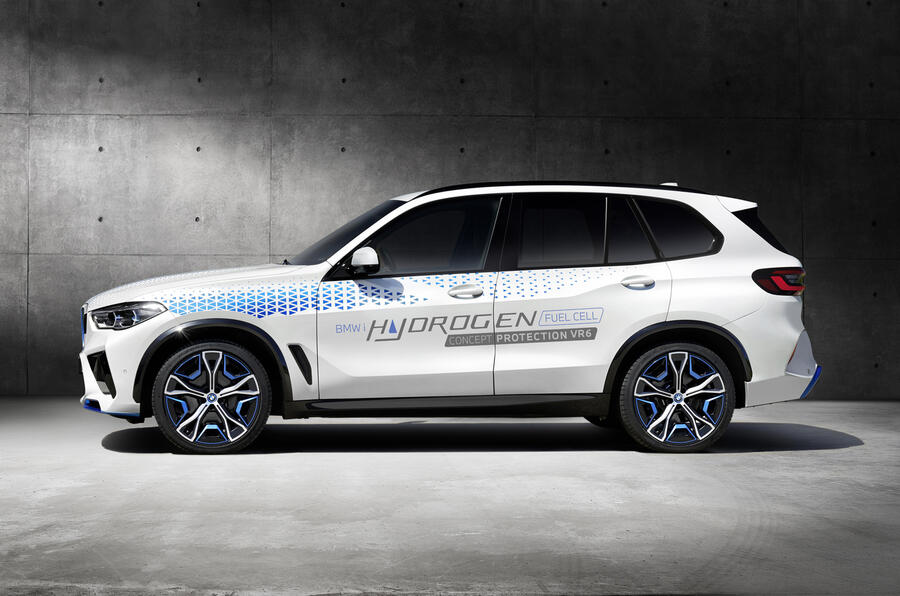
There are a few exterior and interior trim and detail changes to mark out the iX5 Hydrogen from the X5 on which it's based, including a design theme and trim package inspired by BMW’s other i models. New 22in alloy wheels are also offered, wrapped in tyres made from sustainable rubber.
The iX5 Hydrogen won't be offered for general sale, but its successor will be. Guldner confirmed that BMW is working on BEV architectures that would also work for FCEV models, by designing slimmer hydrogen tanks to fit in where the battery pack sits in the floor.
“This will give us the flexibility we need for the future,” said Guldner. “That will come by the second half of the decade. That's the key to taking the technology further, and it will allow us to do that.”
By that time, fuel cell stacks themselves will be smaller and more efficient; and developments in the heavy truck industry – where the adoption of hydrogen is now gathering pace and somewhat of an inevitability as it meets its own aggressive zero-emissions targets – will benefit the car industry and its hydrogen rollout plans, due to high levels of commonality between fuel cell stacks.

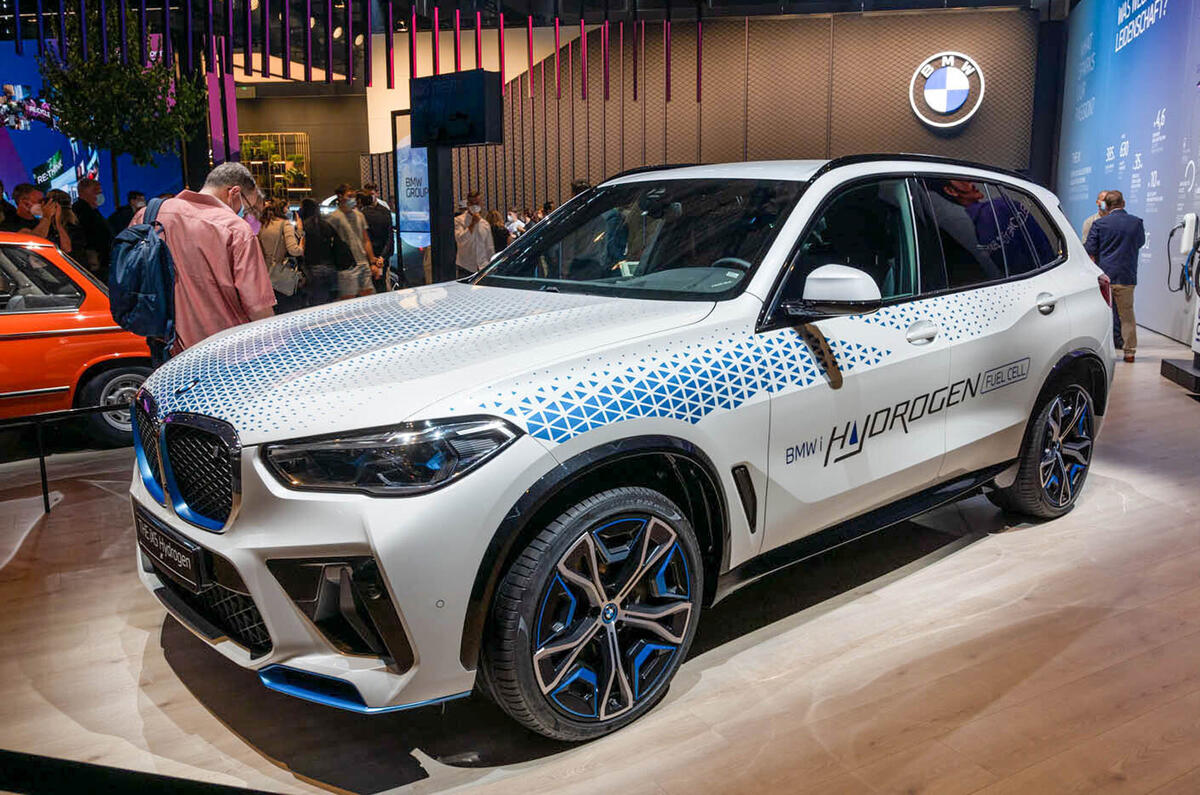
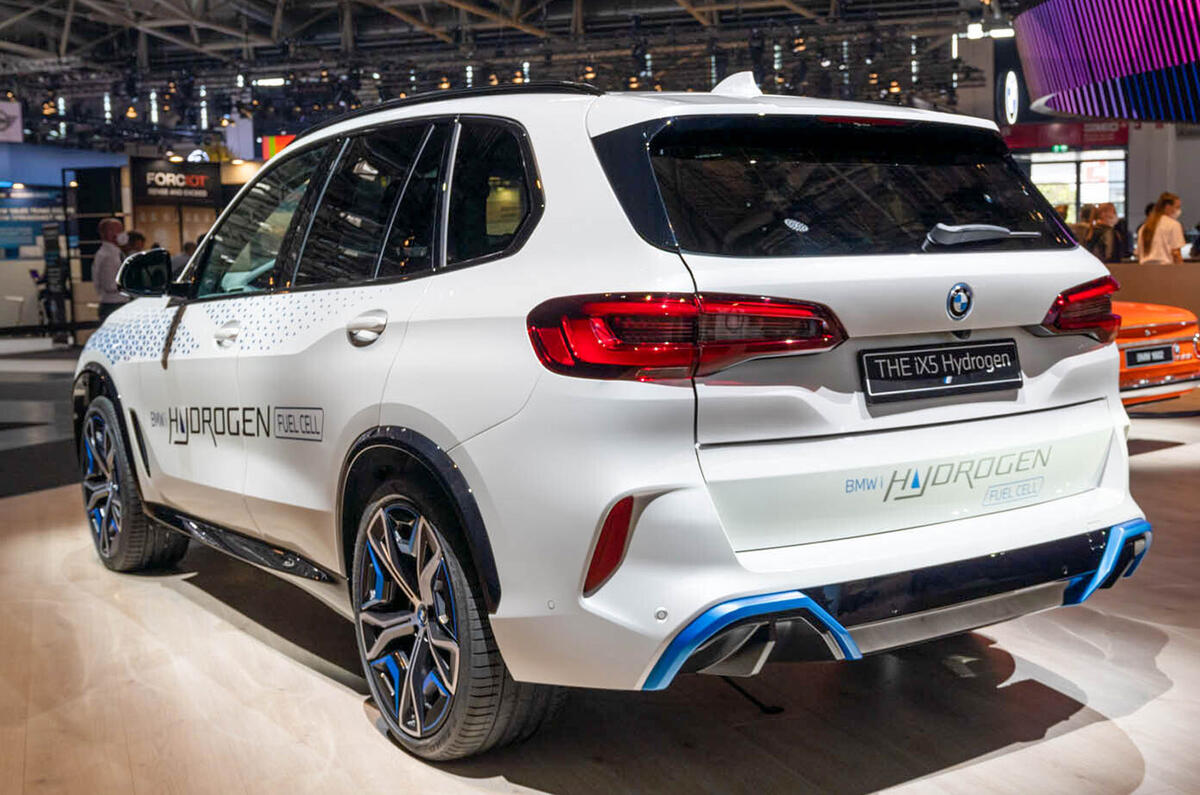
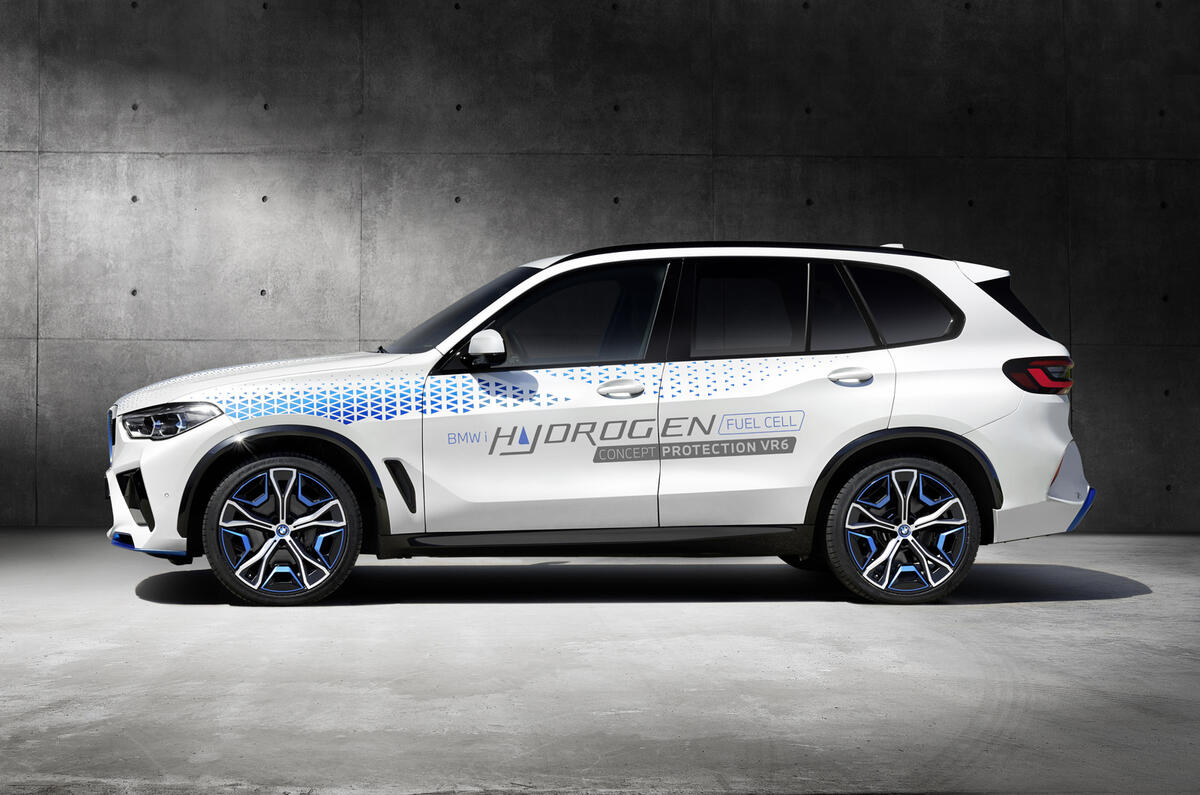
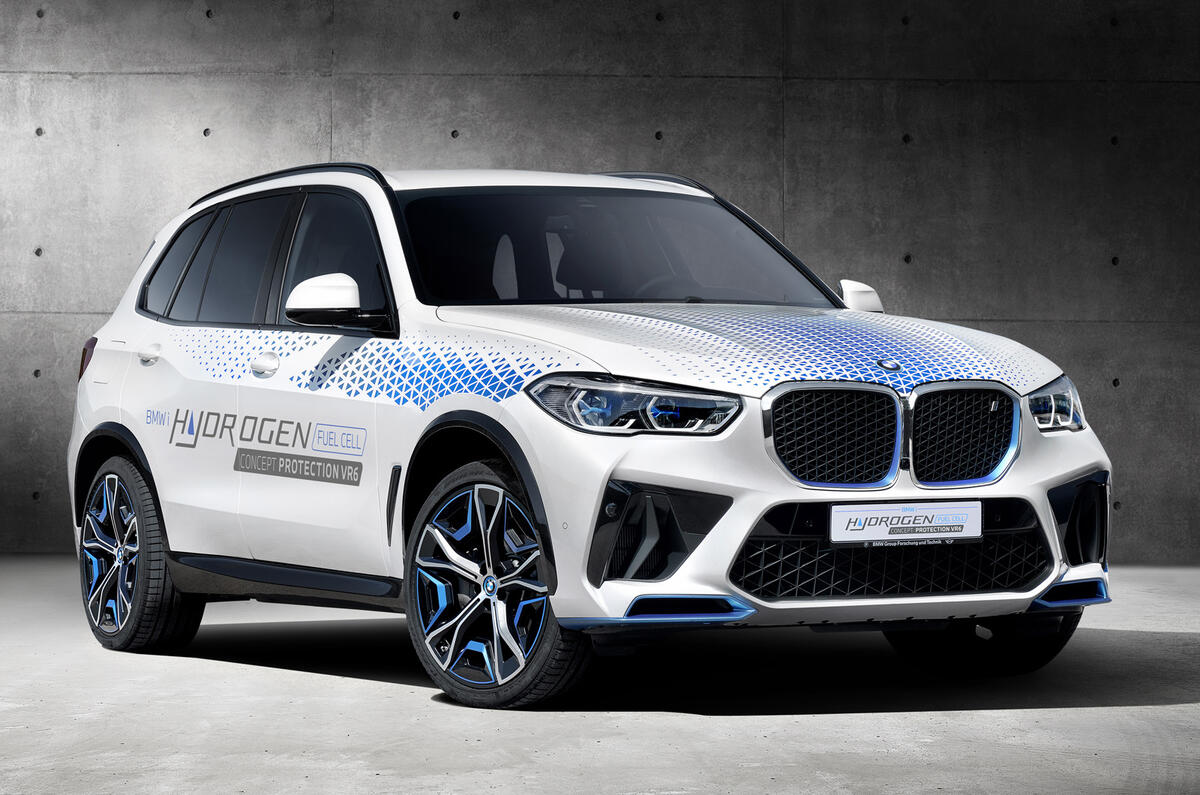
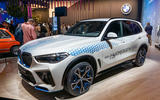
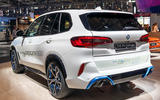
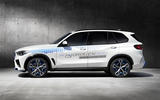
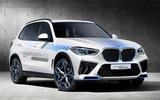






Add your comment